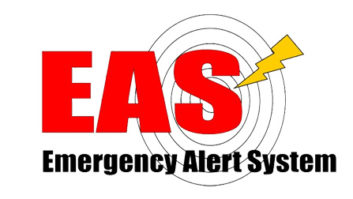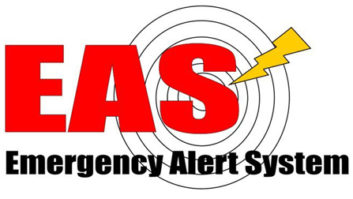
The deadline for EAS participants, including broadcasters, to submit information to the State Emergency Communications Committees on efforts to provide multilingual EAS alerts is next Monday.
The initiative is part of a 2016 FCC order that in part adopted proposals submitted by the Independent Spanish Broadcasters Association, the Office of Communication of the United Church of Christ Inc., and the Multicultural Media, Telecom and Internet Council, to require broadcasters submit information to SECCs on their efforts to include non-English languages on alerts. SECCs had 12 months to collect that information.
At the same time the FCC rejected a call from the groups to mandate multilingual EAS alerts in all markets saying it could not determine how such alerts should be implemented on a nationwide basis.
In the most recent development, the United States Court of Appeals for the District of Columbia earlier this month rejected an appeal by the MMTC and the League of United Latin American Citizens to require the FCC to mandate multilingual EAS alerts.
“Under the FCC’s decision, when broadcasters receive emergency alerts from government entities, the broadcasters may, if they choose, broadcast the alerts only in English. The broadcasters are not required to translate emergency alerts and broadcast the alerts in languages in addition to English,” the court wrote in its decision to deny the appeal. “The FCC decided that it needed to gather more information before it could conceivably impose multilingual requirements of that kind on broadcasters. We conclude that the FCC’s decision was consistent with the relevant statute and was reasonable and reasonably explained. We therefore deny the petition for review.”
So as things stand now SECCs must collect information from EAS participants by November 6 on any steps they have taken to deliver EAS content in languages other than English to its non-English-speaking audience. The SECC also needs to know what if any future actions participants plan to provide EAS alerts in other languages.
Beyond that reporting requirement, the FCC is not requiring any particular outcome with respect to what is done to facilitate access to multilingual EAS alert content, according to the FCC order.
“EAS participants may conclude that no specific actions to facilitate access to multilingual EAS alert content are warranted or feasible in their area for any number of reasons. On the other hand, the mere process of examining this issue in coordination with state and local emergency authorities may lead to implementation of mechanisms that would expand access to EAS alert content, if appropriate,” the FCC said in its 2016 order.
SECCs are required to provide a summary of the information collected from EAS participants to the FCC by May 4, 2018. The submissions will become amendments to State EAS Plans, the FCC said.
Communications attorney David Oxenford of Wilkinson Barker Knauer LLP on his Broadcast Law Blog notes that broadcasters should take the following steps: “Broadcasters need to find out who heads their SECC, and get them the information about multilingual EAS alerts … so that the SECCs can review their state EAS plans and, where necessary, make changes by next May based on the information in the November reporting, so that broadcasters can better serve non-English speaking populations with emergency alerts.”
Further, Oxenford says in the Circuit Court’s decision, which was 2–1 against the appeal, the dissenting judge noted the FCC had already asked for information about multilingual EAS alerts several times and did not get it.
“The dissenting judge thought that the court should have found that the FCC was unreasonable in once again saying that they were looking for more information with no guarantee that they would receive that information. This dissent highlights the importance that seems to be placed on the upcoming submission of this information to state EAS committees,” Oxenford wrote on his blog.










